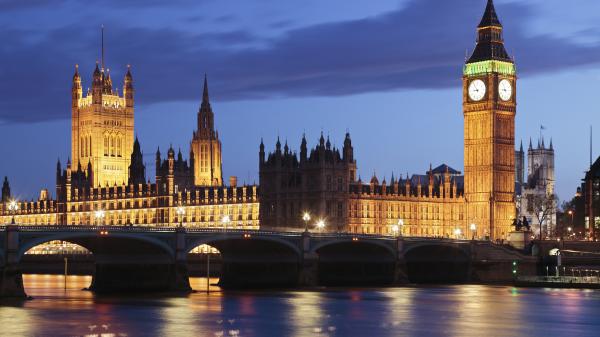UK Parliament Revisits Single Double Summer Time
Parliamentary members in the United Kingdom (UK) are considering the possibility of having a three-year trial to test the benefits of Single Double Summer Time (SDST).
Update
The Daylight Saving Bill 2010-11 is a Private Member's Bill that had its First Reading in Parliament on June 30, 2010. The Bill requires the Secretary of State to conduct a thorough analysis of the potential costs and benefits of adopting Single Double Summer Time in the UK.

Pictured above is Big Ben, at the north end of the Palace of Westminster in London, UK. The UK's parliamentary members are considering a trial period of Single Double Summer Time.
©iStockphoto.com/compassandcamera
This debate reached the House of Lords in July 2010, where Liberal Democrat Lord Lee of Trafford, chair of the Association of Leading Visitor Attractions, stated that the move to Single Double Summer Time was growing its support from many organizations and would help the tourist industry generate more revenue and jobs.
Many might be in favor of the plan, but there are still others in government who might be unsure of its benefits, implied Lord Shutt of Greetland, spokesperson of the Department of Culture Media and Support. The Bill is scheduled for a Second Reading debate on December 3, 2010.
Moreover, the UK Parliament's Energy and Climate Change Committee plans to hold an evidence session on October 28, 2010, on extending daylight saving time to save energy.
The United Kingdom (UK) government will consider switching to Single Double Summer Time for a three-year trial period to help improve the tourism industry.
Why Single Double Summer Time (SDST)
Single Double Summer Time (SDST) in the United Kingdom changes the clocks one hour forward from GMT in the winter and by two hours in the summer. This proposal has been a controversial topic debated by both the general public and politicians alike for years.
Supporters say that extending the hours of daylight will boost the tourism industry, improve road safety and benefit the environment. While others opposed, particularly farmers, outdoor workers and parents, are concerned about the dark winter mornings in the northern parts of the UK.
Longer working hours
The Business Visits and Events Partnership (BVEP) is one of the industries in the United Kingdom that is asking the government to support the events industry by adjusting to SDST. Their manifesto highlights that the trial period of SDST will produce lighter evenings all year that will benefit outdoor events, longer working hours, and improve businesses.
One of the proposal’s main oppositions, the National Farmers’ Union in Scotland, has softened its disagreement to the idea of SDST since its first introduction. They will consider a trial SDST because of the modern-day machinery and lighting equipment available but will need a lot of support from other Conservatives.
Three-Year Trial Period of SDST
After years of debate, the Members of Parliament are calling on the UK Government to consider a three-year trial period of SDST. Tourism Minister John Penrose said that the government agreed to review and consider this carefully, but they had not made any official agreement.
The British Association of Leisure Parks, Piers and Attraction conducted a poll last year, which and found that two thirds of people support the three-year trial and would use the extra time for leisure and sporting activities.
There is still a lot of concern in the UK’s northern parts, particularly Scotland, so the government will study and consider all aspects of this proposal before deciding on the use of Single Double Summer Time in the UK. timeanddate.com will provide more updates on this issue as information becomes available.
Read more about the United Kingdom’s SDST debate in our previous article on the topic.
Please note that references to "summer" or "winter" in this article relate to summer and winter in the northern hemisphere, not the southern hemisphere.
Disclaimer: Please note that the opinions and views shared in this article do not necessarily reflect those of timeanddate.com regarding the daylight saving debate.